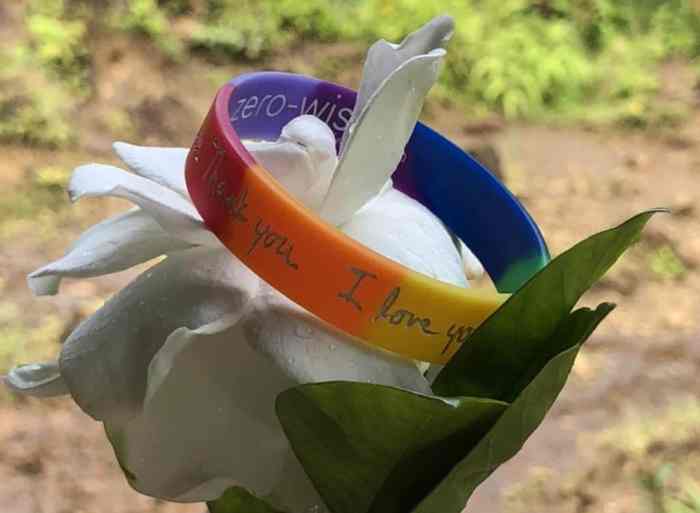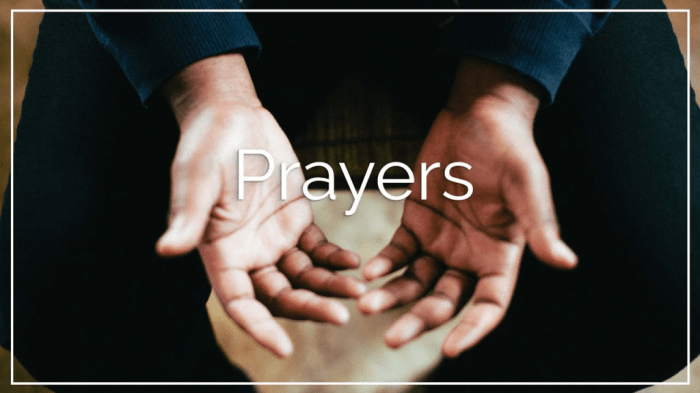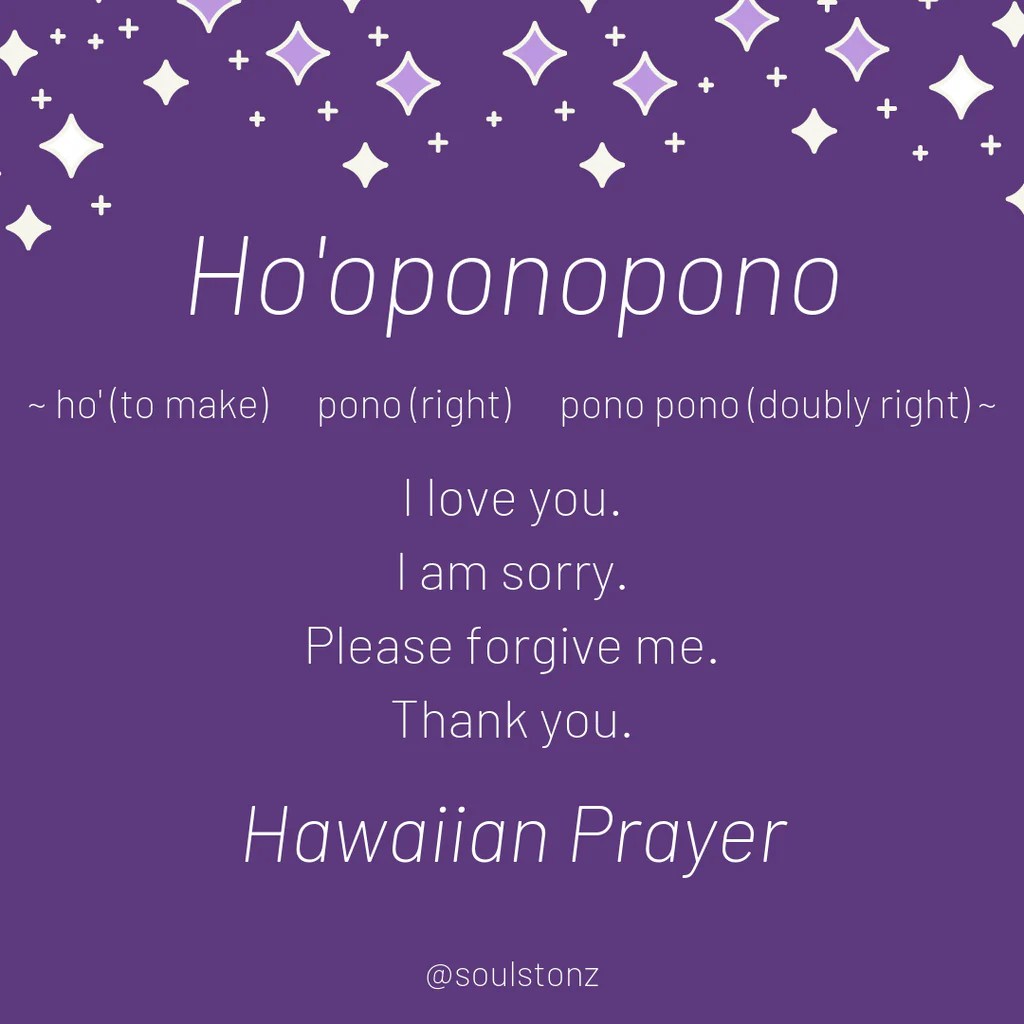The hawaiian prayer for the departed, a sacred and time-honored tradition, holds profound cultural and spiritual significance in Hawaiian society. Rooted in ancient beliefs and practices, these prayers serve as a bridge between the living and the departed, honoring the ancestors and guiding the spirits of the deceased.
Throughout this exploration, we will delve into the structure, elements, and key themes of hawaiian prayers for the departed, examining their role in traditional Hawaiian rituals and ceremonies. We will also trace the evolution of these prayers over time, discussing contemporary adaptations and influences that have shaped their present-day practices.
Hawaiian Cultural Beliefs and Practices

Prayer is a fundamental aspect of Hawaiian culture, expressing reverence for the divine, ancestors, and the natural world. Hawaiians believe in a spiritual realm where ancestors and departed loved ones continue to exist, influencing the lives of the living.
Ancestors and the Departed
Ancestors hold a sacred place in Hawaiian culture, serving as protectors, guides, and sources of wisdom. The departed are believed to transition to the spirit world, known as “Po,” where they continue to interact with their living descendants. Respecting and honoring the dead is essential, as their spirits can influence the well-being of the living.
Traditional Rituals and Ceremonies
Hawaiian culture has a rich tradition of rituals and ceremonies honoring the departed. These include:
- Ho’okupu:Offerings made to the gods, ancestors, or departed loved ones to express gratitude, respect, and seek their favor.
- Kanikau:Chants and prayers recited during ceremonies to honor the dead and connect with their spirits.
- Luakini:Ancient temple platforms used for religious ceremonies, including rituals for the departed.
li> Kuahu:Altars erected to honor the dead, where offerings and prayers are made.
These rituals and ceremonies reflect the deep respect and reverence Hawaiians hold for their ancestors and the departed, honoring their legacy and maintaining a spiritual connection with them.
Structure and Elements of Hawaiian Prayers: Hawaiian Prayer For The Departed

Hawaiian prayers possess a distinct structure and incorporate specific components that reflect the cultural beliefs and practices of the Hawaiian people. These prayers often follow a set pattern and utilize particular words, phrases, and symbols to convey spiritual messages and connect with the divine.
The use of repetition and rhythm in Hawaiian prayers holds significant importance. Repetition allows for the reinforcement of key ideas and concepts, while rhythm creates a sense of flow and harmony that enhances the prayer’s emotional impact.
Common Structure of Hawaiian Prayers
Hawaiian prayers typically adhere to a common structure, which includes the following components:
- Invocation:The prayer begins with an invocation, which is a call to the divine or a specific deity.
- Chant:The chant, or oli, is the main body of the prayer and conveys the specific message or request to the divine.
- Dedication:The prayer concludes with a dedication, which expresses gratitude and respect for the divine and often includes a request for blessings or protection.
Specific Words, Phrases, and Symbols
Hawaiian prayers incorporate specific words, phrases, and symbols that carry cultural and spiritual significance. Some common words and phrases include:
- Aloha:A greeting and expression of love, compassion, and respect.
- Mahalo:An expression of gratitude and thanks.
- Ho’omaika’i:A blessing or wish for good fortune.
Symbols, such as the conch shell (pu) and the hula dance, are also incorporated into Hawaiian prayers to represent spiritual concepts and connect with the divine.
Significance of Repetition and Rhythm
Repetition and rhythm play a vital role in Hawaiian prayers. Repetition allows for the reinforcement of key ideas and concepts, enhancing their impact on the listener. The rhythmic flow of the prayers creates a sense of harmony and connection with the divine.
Hawaiian Prayer for the Departed

Hawaiian prayers for the departed, known as pule ho’omana, hold deep cultural and spiritual significance in Hawaiian culture. These prayers are offered to honor and guide the spirits of those who have passed away, providing comfort and solace to the living.
One of the most well-known traditional Hawaiian prayers for the departed is “E Ho’i Mai Ka ‘Uhane”(Return of the Spirit). This prayer is believed to help the spirit of the deceased find peace and make its journey to the afterlife.
Translation and Interpretation
E Ho’i Mai Ka ‘Uhanecan be translated as follows:
Return, O spirit, to your resting place,Where the sun sets in the west.May you find peace and comfort,In the arms of your ancestors.
The prayer begins by calling upon the spirit to return to its resting place, which is believed to be in the west, where the sun sets. This symbolizes the journey that the spirit must take to reach the afterlife.
The second line of the prayer expresses the hope that the spirit will find peace and comfort in the arms of its ancestors. This reflects the Hawaiian belief that the spirits of the deceased continue to exist and watch over their living relatives.
Key Themes and Messages
The key themes and messages conveyed in “E Ho’i Mai Ka ‘Uhane”include:
- Honoring the departed:The prayer honors the memory of the deceased and expresses the love and respect of the living.
- Guiding the spirit:The prayer provides guidance and support to the spirit as it makes its journey to the afterlife.
- Finding peace and comfort:The prayer expresses the hope that the spirit will find peace and comfort in the afterlife.
Cultural and Spiritual Significance
“E Ho’i Mai Ka ‘Uhane”is a deeply spiritual prayer that reflects the Hawaiian belief in the afterlife and the importance of honoring the departed. The prayer is often recited at funerals, memorials, and other occasions to remember and honor those who have passed away.
By offering this prayer, Hawaiians express their belief that the spirits of their loved ones continue to exist and that they can provide guidance and support from the afterlife.
Contemporary Adaptations and Influences

Hawaiian prayers for the departed have undergone various adaptations and influences over time. These changes reflect the evolving cultural and religious landscape of Hawaii.
The arrival of Christianity in Hawaii in the 19th century had a significant impact on Hawaiian prayer practices. Missionaries introduced new prayers and hymns, which were often adapted to include traditional Hawaiian elements. For example, the popular hymn “Aloha Oe” incorporates the traditional Hawaiian farewell chant “Eia Au Ke Aloha Oe.”
Influence of Christianity
- Introduction of new prayers and hymns
- Adaptation of traditional prayers to include Christian elements
- Use of Hawaiian language in Christian prayers
Other Religious Influences, Hawaiian prayer for the departed
In addition to Christianity, other religions have also influenced Hawaiian prayer practices. For example, Buddhism has introduced the concept of reincarnation and the importance of compassion.
Contemporary Adaptations
In contemporary times, Hawaiian prayers for the departed continue to evolve. Many families now incorporate personal stories and memories of the deceased into their prayers. Some families also choose to hold prayer services in non-traditional settings, such as at the beach or in a park.
- Incorporation of personal stories and memories
- Prayer services held in non-traditional settings
- Use of social media to share prayers and connect with others
Essential FAQs
What is the significance of prayers in Hawaiian culture?
Prayers hold immense significance in Hawaiian culture, serving as a means of communication with the divine, expressing gratitude, seeking guidance, and honoring the ancestors.
How do Hawaiian prayers differ from prayers in other cultures?
Hawaiian prayers are unique in their use of specific words, phrases, and symbols that carry cultural and spiritual meanings. They often incorporate elements of nature, such as the ocean, mountains, and stars, and are characterized by a rhythmic and repetitive structure.
What are some contemporary adaptations of traditional hawaiian prayers?
Contemporary adaptations of traditional hawaiian prayers include the incorporation of Christian elements, such as references to God and Jesus, as well as the use of Hawaiian language alongside English.
